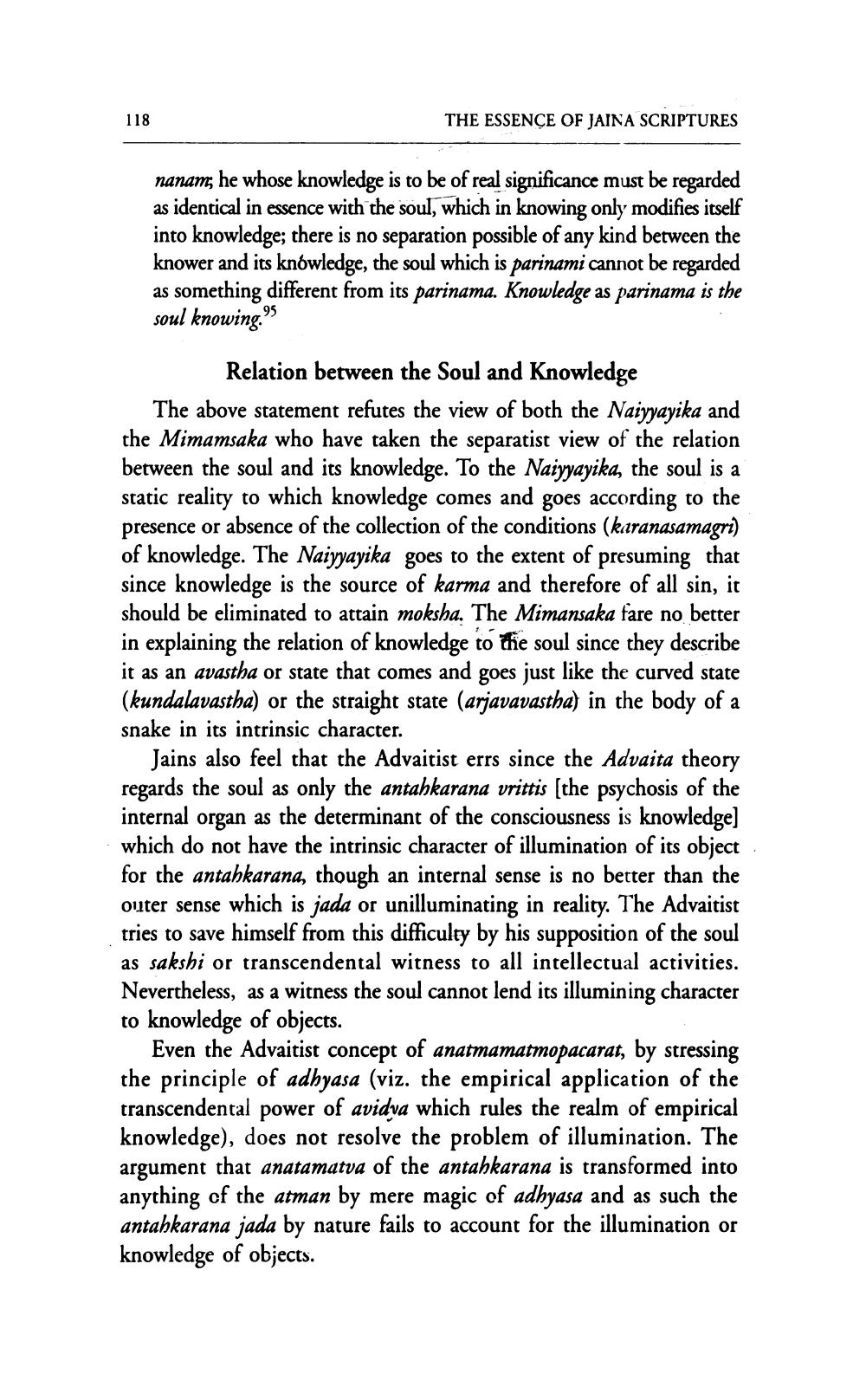________________
118
THE ESSENCE OF JAINA SCRIPTURES
nanam, he whose knowledge is to be of real significance must be regarded as identical in essence with the soul, which in knowing only modifies itself into knowledge; there is no separation possible of any kind between the knower and its knowledge, the soul which is parinami cannot be regarded as something different from its parinama. Knowledge as parinama is the soul knowing."
Relation between the Soul and Knowledge The above statement refutes the view of both the Naiyyayika and the Mimamsaka who have taken the separatist view of the relation between the soul and its knowledge. To the Naiyyayika, the soul is a static reality to which knowledge comes and goes according to the presence or absence of the collection of the conditions (karanasamagri) of knowledge. The Naiyyayika goes to the extent of presuming that since knowledge is the source of karma and therefore of all sin, it should be eliminated to attain moksha. The Mimansaka fare no better in explaining the relation of knowledge to thie soul since they describe it as an avastha or state that comes and goes just like the curved state (kundalavastha) or the straight state (arjavavastha) in the body of a snake in its intrinsic character.
Jains also feel that the Advaitist errs since the Advaita theory regards the soul as only the antahkarana vrittis (the psychosis of the internal organ as the determinant of the consciousness is knowledge] which do not have the intrinsic character of illumination of its object for the antahkarana, though an internal sense is no better than the outer sense which is jada or unilluminating in reality. The Advaitist tries to save himself from this difficulty by his supposition of the soul as sakshi or transcendental witness to all intellectual activities. Nevertheless, as a witness the soul cannot lend its illumining character to knowledge of objects.
Even the Advaitist concept of anatmamatmopacarat, by stressing the principle of adhyasa (viz. the empirical application of the transcendental power of avidva which rules the realm of empirical knowledge), does not resolve the problem of illumination. The argument that anatamatva of the antahkarana is transformed into anything of the atman by mere magic of adhyasa and as such the antahkarana jada by nature fails to account for the illumination or knowledge of objects.




